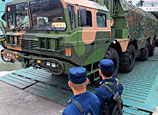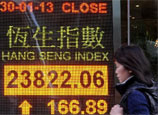
Deep-seated problems
Finding growth points for China's economy is more than a pressing issue: It also reveals problems that have accumulated over time.
Jiang Zhenghua, former Vice Chairman of the Standing Committee of the National People's Congress, believes that only by fully understanding China's current economic development can the engine for sustainable development be tapped.
First, China's investment efficiency has been on the decline, says Jiang. Investment elasticity, a coefficient to measure the growth rate of the GDP when investment increases 1 percent, has tumbled in recent years. In the January to November period of 2012, investment elasticity was 0.3 percent, far lower than the world average.
Second, despite advancing by leaps and bounds in the fields of science and technology, core technology remains out of China's hands. Computer systems are a good example. China has taken second place in terms of computing speed, but the core chips and software are imported from other countries. The lack of core expertise is a major weakness.
Third, productivity is relatively low. According to statistics released by the International Labor Organization, China lags far behind Germany in productivity in almost every industrial sector. Efforts must be made to elevate productivity.
Fourth, resource scarcity will increasingly restrain China's economic development, such as a shortage of petroleum. Furthermore, fresh water seems more likely to block the development of some regions, for China only accounts for 6 percent of the world's total freshwater resources while it breeds one quarter of the world's total population.
Wang Qing, Managing Director of China International Capital Corp. Ltd., said China has to do three things in the long term—sustain momentum for economic growth, manage the financial relations between the central and local governments and initiate the retreat of state-owned enterprises from competitive sectors.
According to Wang, for emerging economies, sustainable growth of the labor force is fundamental for economic growth. Meanwhile, macroeconomic problems stem from fiscal problems, the key of which is the financial relations between the central and local governments. To ensure efficient and quality economic growth, the government and state-owned enterprises should retreat from the competitive sectors and make room for privately owned enterprises.
"China's economic development still depends largely on policy stimulus. The enthusiasm to invest is always dampened by invisible obstacles," said Lu Zhengwei, chief economist of Industrial Bank Co. Ltd.
At the conference, Lu presented his view that China should force the market to play a bigger role in promoting economic growth.
But He Qiang, a professor at the Central University of Finance and Economics, noted that the government should slowly ease its monetary policies in 2013 to shore up economic growth. In the short run, policy support seems indispensable in order to secure a growth rebound.
"Looking back, investment was always the starter for economic growth. As a new economic growth pattern has yet to take shape, what really matters is still investment," said He.



















![]()
